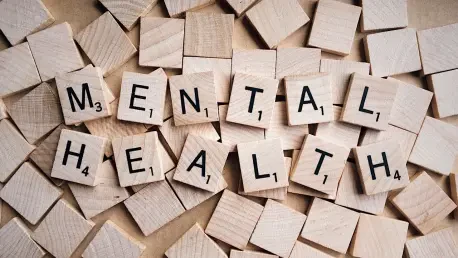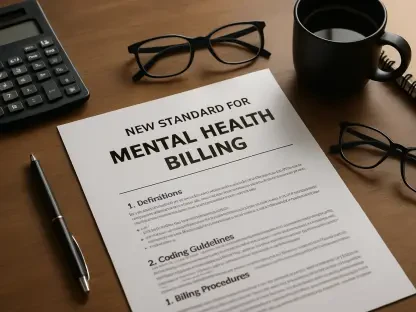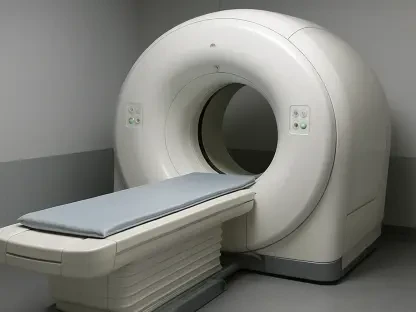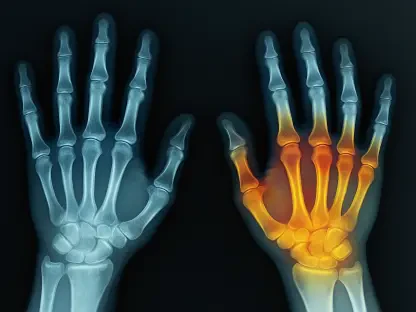Recent legislation targeting mental health awareness and accessibility within the Asian American, Native Hawaiian, and Pacific Islander (AANHPI) communities represents a pivotal moment in addressing mental health care disparities. Spearheaded by U.S. Sen. Mazie Hirono of Hawaii and U.S. Rep. Judy Chu of California, this legislative push highlights the urgent need for specialized mental health services tailored to the unique cultural and linguistic requirements of AANHPIs. This demographic has long been underserved and faces significant challenges in accessing appropriate mental health care. The establishment of May 10 as National AANHPI Mental Health Day symbolizes a crucial step toward amplifying mental health awareness and support for these families and their communities.
The Significance of AANHPI Mental Health Day
Acknowledging Mental Health Challenges
The designation of Asian American, Native Hawaiian, and Pacific Islander Mental Health Day underscores the importance of mental health for the well-being of AANHPI individuals. This resolution aims to increase awareness surrounding mental health issues prevalent in these communities while emphasizing the role of health agencies in adopting strategies to enhance the usage of mental health services. Within this effort, attention is not solely on AANHPIs but extends to other marginalized communities, ultimately striving for an inclusive approach to mental health care. The resolution catalyzes conversations around mental health stigma and compels health agencies to refine their approaches, making mental health support more accessible.
Underserved Population Concerns
Statistical data paints a troubling picture of mental health service utilization within AANHPI communities, highlighting a substantial lack of accessible care. The Substance Abuse and Mental Health Services Administration (SAMHSA) reports that approximately 65.3% of AANHPIs diagnosed with mental health conditions do not receive necessary treatment, showcasing systemic barriers such as language and cultural taboos. These barriers, along with a lack of culturally competent care, emphasize the importance of the legislation’s focus on creating more effective outreach and educational strategies. By identifying leading causes of disparities, the legislation advocates for initiatives that directly address these challenges, creating pathways for better engagement and service delivery.
Addressing Alarming Suicide Rates
Understanding the Crisis
The mental health crisis within AANHPI youth is further highlighted by suicide statistics that demand immediate attention and action. Suicide stands as a leading cause of death for AANHPIs aged 10 to 24, with Hawaii experiencing higher rates than the national average. Native Hawaiians, in particular, face suicide rates almost double the national figures, illustrating the urgent need for targeted mental health interventions. Without decisive actions that account for cultural nuances, these alarming trends risk persisting. Thus, understanding and addressing the specific mental health needs of AANHPI youth become essential in curbing these rates and providing proper preventative measures.
Strategic Interventions
Legislative measures such as the Stop Mental Health Stigma in Our Communities Act are poised to address these concerns through comprehensive strategies. This initiative mandates the development of nationwide outreach programs in collaboration with established advocacy and behavioral health organizations with proven success in serving AANHPI communities. Such collaboration is expected to drive meaningful change by ensuring that interventions are not only culturally attuned but also effectively delivered. Research focused on understanding behavioral health issues at the granular level of youth demographics within AANHPIs is also vital. This approach aims to bridge workforce gaps, ensuring that skilled professionals can provide tailored care, ultimately improving the mental health landscape for AANHPI youth.
Overcoming Systemic Barriers
Legislative and Community Consensus
There is a broad consensus among policymakers and mental health advocates that the measures advocated in the new legislation are essential in dismantling systemic barriers to mental health care. By prioritizing stigma reduction and fostering culturally relevant care environments, the initiatives aim to transform perception within AANHPI communities regarding seeking mental health support. This broad coalition supporting the legislation comes amid growing recognition that cultural and linguistic integrations are crucial to improving mental health outcomes. A systematic approach toward culturally competent mental health services stands poised to revolutionize the accessibility and utilization of support services among these underserved groups.
Impact of Cultural Competency on Healthcare
Advocacy for this new wave of legislative reform is strongly backed by health leaders who recognize the significance of culturally informed mental health care. Senators like Hirono and Chu emphasize the climbing rates of mental health challenges juxtaposed with the celebration of AANHPI Heritage Month and Mental Health Awareness Month. The intertwined issues of economic, cultural, and linguistic barriers are at the forefront of their agenda, highlighting the need for proactive dismantling. By championing the need for culturally competent mental health care, the legislative efforts promise to introduce a deeper understanding of AANHPI needs into mental health service provision, encouraging individuals to pursue the help they require without fear of cultural stigma.
Actionable Steps Towards Change
Enacting Comprehensive Change
The resolutions and legislative acts introduced represent a significant move toward comprehensive policy and guidance development by federal, state, and local agencies. Addressing mental health stigmas through education and outreach is likely to contribute to increased awareness and expectancy that individuals feel empowered to seek mental health support. The collective efforts of advocates and experts propel the conversation forward, creating a hopeful future where stigma is minimized and mental health services are accessible.
A Unified Vision
Recent legislation addressing mental health awareness and accessibility in Asian American, Native Hawaiian, and Pacific Islander (AANHPI) communities marks a significant advancement in tackling disparities in mental health care. This initiative is led by U.S. Sen. Mazie Hirono of Hawaii and U.S. Rep. Judy Chu of California, both emphasizing the crucial need for specialized mental health services adapted to the unique cultural and linguistic needs of AANHPIs. Historically, this group has faced substantial barriers in accessing adequate mental health care, often resulting in them being underserved. The declaration of May 10 as National AANHPI Mental Health Day represents an imperative step in heightening mental health awareness and bolstering support within these communities. The legislative movement underscores the urgency for tailored interventions that address the specific challenges faced by the AANHPI demographic, promoting greater inclusivity and equity in mental health services that can bridge existing gaps and foster community well-being.









